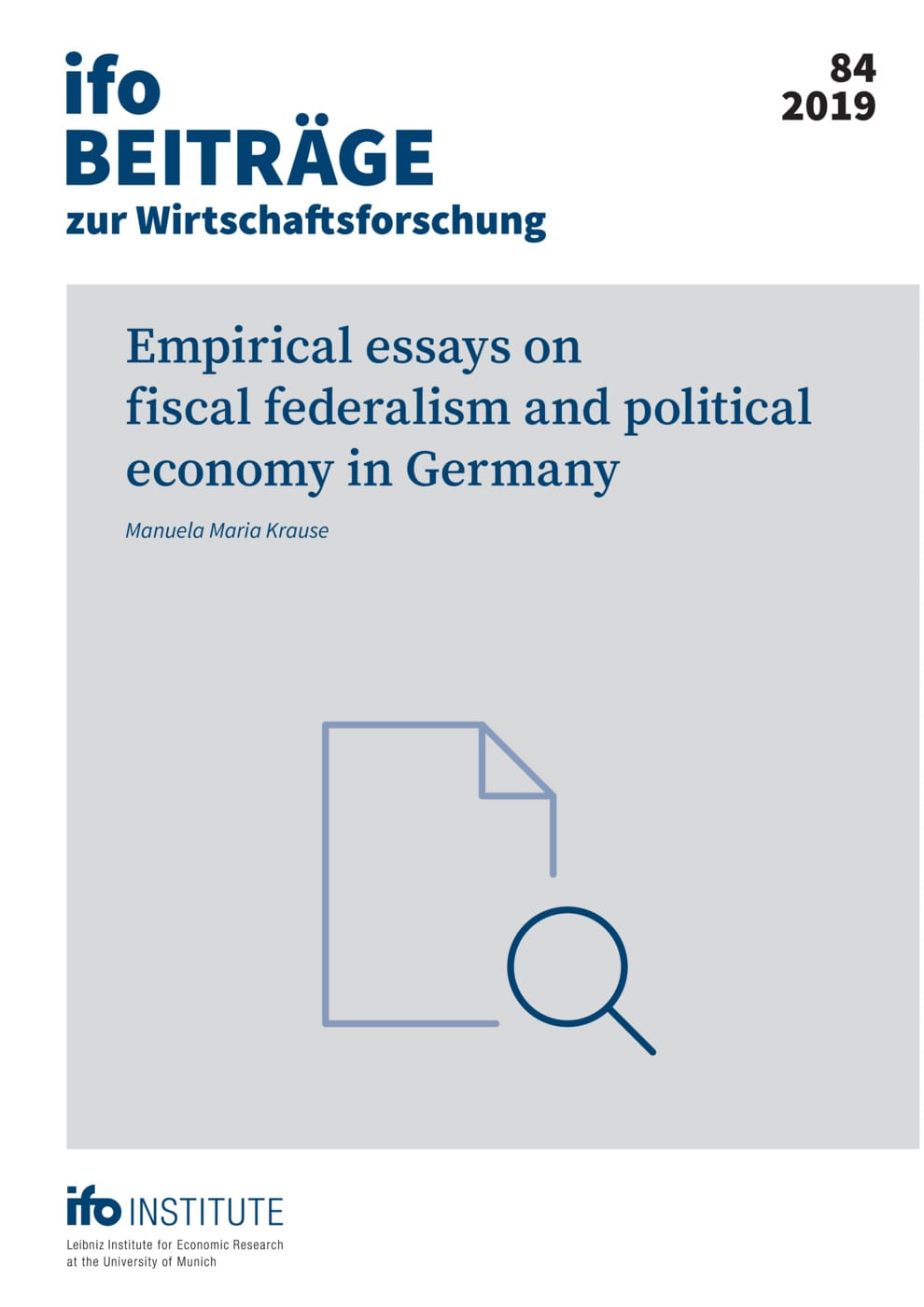Empirical essays on fiscal federalism and political economy in Germany
ifo Institute, Munich, 2019
ifo Beiträge zur Wirtschaftsforschung / 84

The dissertation consists of six self-contained chapters that are related to selected incentives in fiscal federalism by using the example of the federal system in Germany. The dissertation elaborates on political as well as fiscal incentives. Chapters 2 and 3 examine election cycles, based on the political business cycle theories. Chapter 2 examines whether election cycles occur in fees of German municipalities. The results show that municipalities have a leeway to decide on fees and use this leeway to improve election prospects. Chapter 3 investigates election cycles in salary increases of German state MPs, for which the states have the decision-making authority. The results do not show that electoral motives influence increases in MP salaries. Chapters 4 and 5 investigate how government ideology influences economic policy-making. Chapter 4 analyzes whether government ideology influences income inequality in the public sector of the German states by using data on salaries of civil servants. The results do not show that left-wing governments were more active in decreasing income inequality in the public sector than center or right-wing governments. Chapter 5 analyzes whether government ideology predicts tax policies of the German states. A reform of the fiscal constitution in 2006 allowed the states to set the tax rates of the real-estate transfer tax. By investigating the tax rate increases of the German states, the results show that left-wing governments were more active in increasing the tax rates than right-wing governments. Chapters 6 and 7 investigate fiscal incentives within the federal system in Germany by analyzing whether the institutional setting also provides incentives for states’ tax policies. The German fiscal equalization scheme redistributes revenues among the federal and state level and between states equalizing funds for the states. The devolution of tax setting powers to the states in 2006 provides an interesting set-up to investigate the combination of tax autonomy and fiscal equalization. The descriptive results in Chapter 6 and the empirical analysis in Chapter 7 show that equalization substantially influences tax policies of the states. The redistribution of revenues within the equalization scheme provides incentives for the states to raise rather than to lower their tax rates.